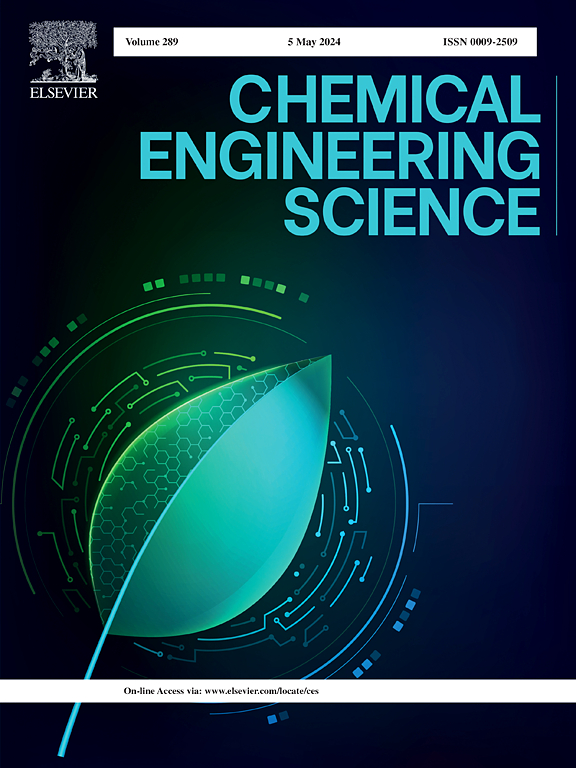根据化工系统在催化剂生命周期内的整体性能,确定最佳反应器和运行参数的新方法
IF 4.1
2区 工程技术
Q2 ENGINEERING, CHEMICAL
引用次数: 0
摘要
催化剂失活会影响化学系统的性能和反应器的运行。考虑到催化剂失活问题,提出了一种系统方法来确定最佳反应器、运行参数、系统性能和催化剂使用寿命。基于反应、催化剂失活动力学和质量/能量平衡的耦合分析,阐明了反应器性能、运行参数和运行时间之间的关系。通过拓扑分析、捏合分析和代数推理,探讨了反应器波动对能源成本和产品产出的影响。建立了反应器-分离器-换热器网络耦合框架,以预测系统性能并指导反应器选择、催化剂再生和系统调整。所提出的方法直观高效,可应用于准备/操作阶段。对于所研究的苯加氢工艺,塞流式反应器是合适的;催化剂的最佳使用寿命为 2.08 年,通过实时调整可使年成本和能源需求/碳排放分别降低 4.4% 和 4.8%。本文章由计算机程序翻译,如有差异,请以英文原文为准。
Novel methodology for targeting the optimal reactor and operating parameters based on the chemical system’s overall performance within catalyst lifecycle
Catalyst deactivation affects chemical system performance and reactor operation. A systematic method is proposed for targeting the optimal reactor, operating parameters, system performance, and catalyst service life, considering the catalyst deactivation. Relations between reactor performance, operating parameters, and running time are clarified based on the coupling analysis of the reactions, catalyst deactivation kinetics, and mass/energy balance. The influence of reactor fluctuation on energy cost and product output is explored by topological analysis, pinch analysis, and algebraic reasoning. A reactor-separator-heat exchanger network coupling frame is established to predict system performance and guide the reactor selection, catalyst regeneration, and system adjustments. The proposed method is intuitive and efficient and can be applied in the preparatory/operation stage. For the studied benzene hydrogenation process, the Plug Flow Reactor is suitable; the catalyst’s optimal service life is 2.08 y, achieving 4.4 % and 4.8 % decreases in annual cost and energy demand/carbon emission by real-time adjustments.
求助全文
通过发布文献求助,成功后即可免费获取论文全文。
去求助
来源期刊

Chemical Engineering Science
工程技术-工程:化工
CiteScore
7.50
自引率
8.50%
发文量
1025
审稿时长
50 days
期刊介绍:
Chemical engineering enables the transformation of natural resources and energy into useful products for society. It draws on and applies natural sciences, mathematics and economics, and has developed fundamental engineering science that underpins the discipline.
Chemical Engineering Science (CES) has been publishing papers on the fundamentals of chemical engineering since 1951. CES is the platform where the most significant advances in the discipline have ever since been published. Chemical Engineering Science has accompanied and sustained chemical engineering through its development into the vibrant and broad scientific discipline it is today.
 求助内容:
求助内容: 应助结果提醒方式:
应助结果提醒方式:


